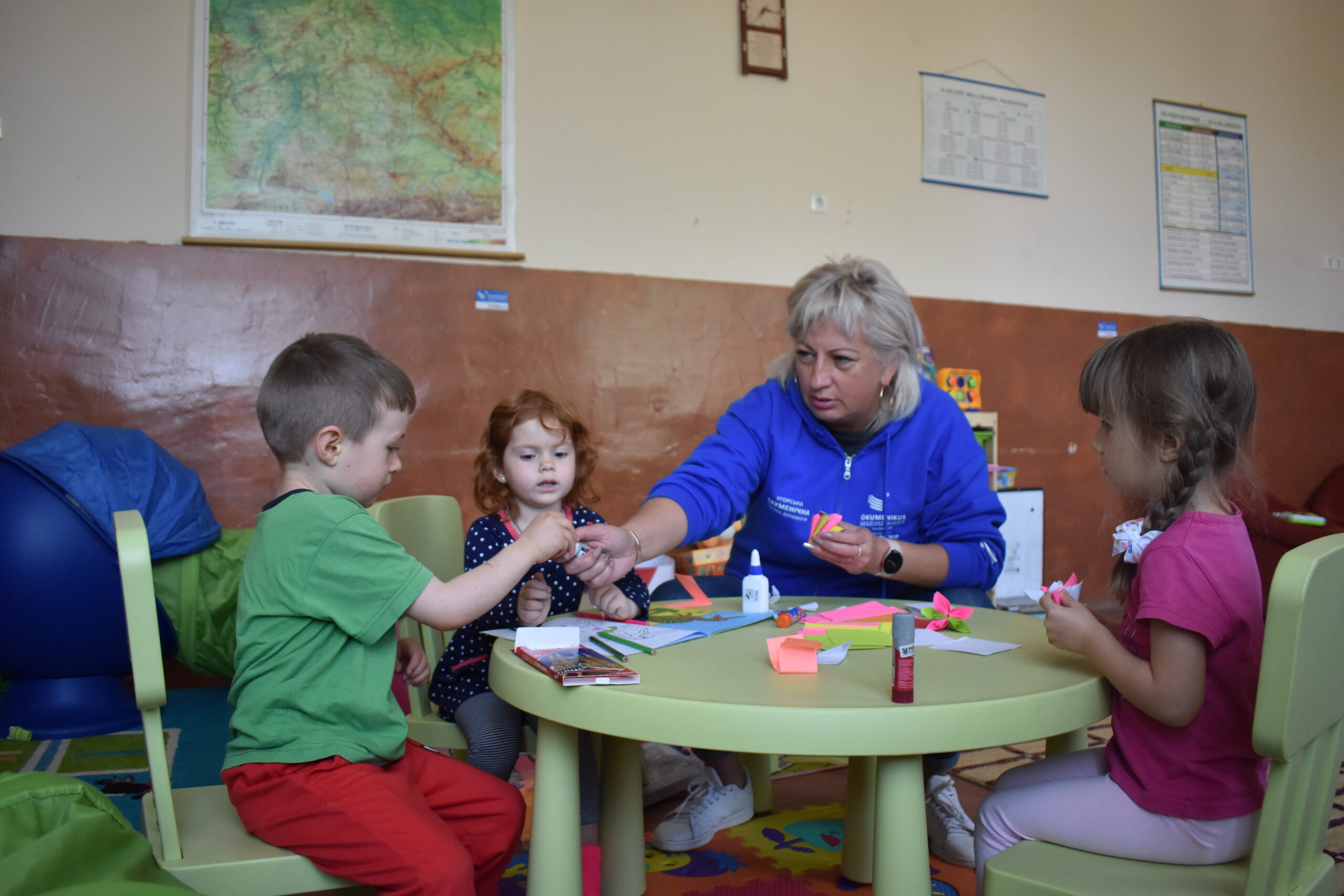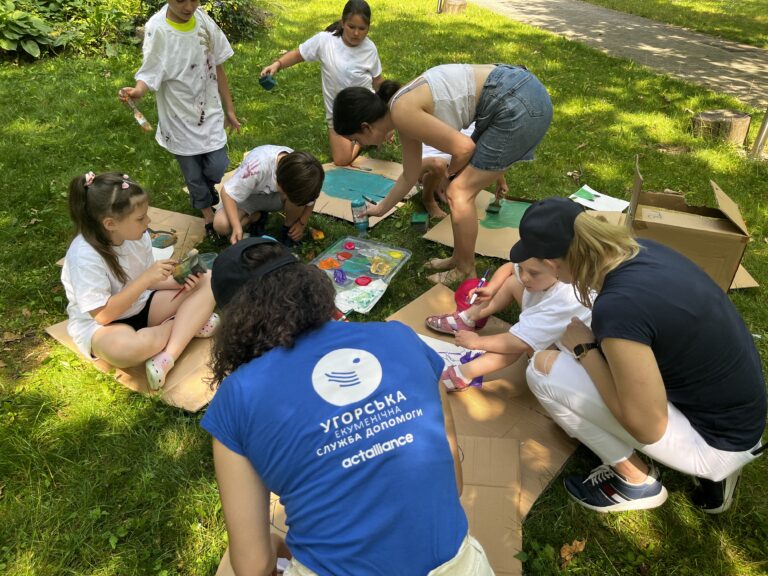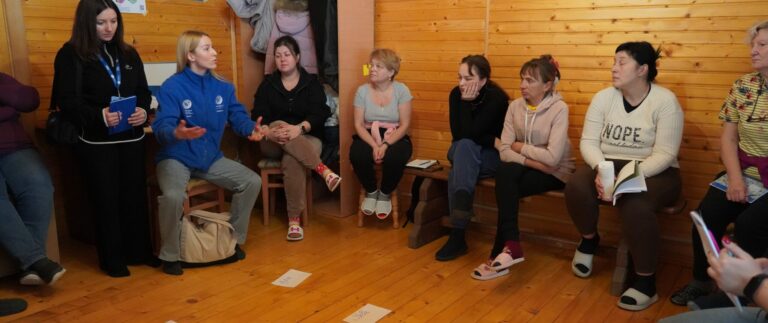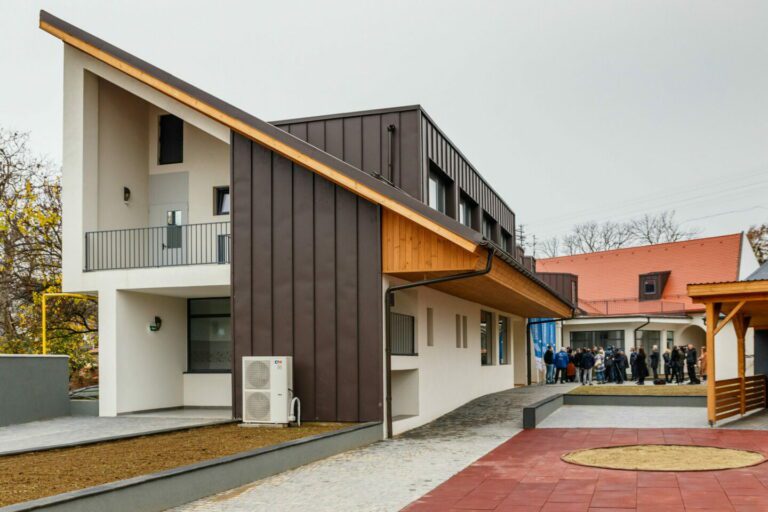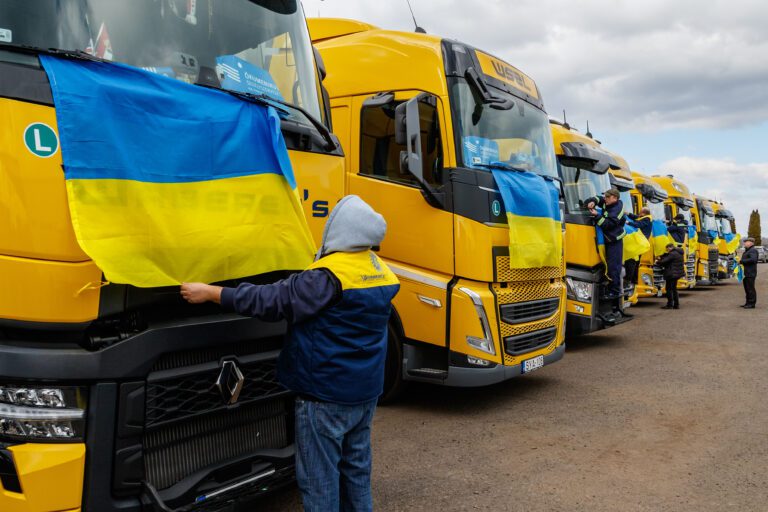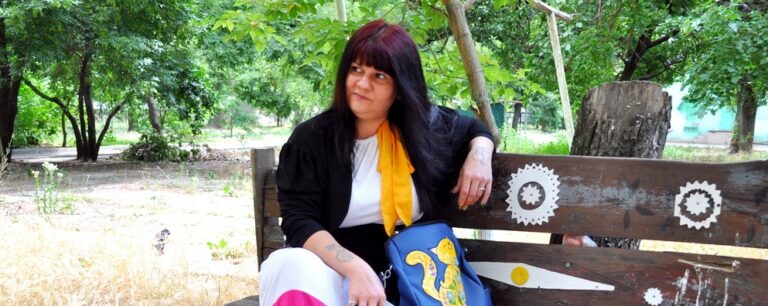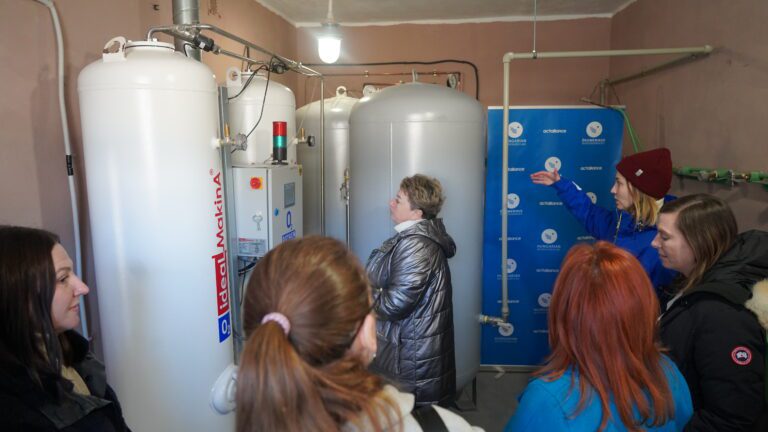A Sure Start for Displaced Children
Sure Start – a term familiar for many UK readers – is also the name of a Hungarian Interchurch Aid institution in the town of Berehove, Ukraine. The Sure Start Children’s House (Biztos Kezdet Gyerekház in Hungarian) was established four years ago to help single mothers in need. Following the Russian invasion of Ukraine, its function had to change and was transformed into a community shelter. But with the arrival of the first internally displaced families, staff and leadership realised that the help of Sure Start could be essential for the children in the HIA-supported shelters trying to cope with the war trauma. János Gerevich, leader of the Berehove regional office of HIA restarted the programme, and relocated staff and volunteers together with all of their toys and equipment to the shelter for families. Ever since, they have been also working with internally displaced families and their children.
“Even though these children are staying together with at least one of their parents – most of the time only their mother – they miss their kindergarten, school, their friends and their home. Their daily lives are overshadowed by the ongoing war. I’m trying to make their days a little happier, to make them forget the horrors they’ve been through” – explains Szilvia Pércsi, leader of the programme. “As of now, 14 children aged 3-16 live in the shelter with their families. Originally, Sure Start Children’s house is a programme where mothers can bring their children aged 0-3 for early development counselling and training. Mothers receive healthcare & childcare advice, while the little ones play with developmental toys. Now of course all children living here are welcome to attend these activities, regardless of age, since it was me who moved into their home. It makes me proud that every morning these children are already waiting for me, it looks like they like our sessions.”
I see mostly children aged 3 to 5 playing around here. How do you keep them occupied?
“I am first and foremost a health visitor [nurse working with mothers and their children before they go to kindergarten], not a kindergarten teacher. I try to find the balance between development work and pedagogy. I put a lot of emphasis on team play, developmental games and fine motor development. We also use colouring books specifically created for stress relief. Usually, mothers don’t accompany their children to these sessions, but I don’t see that as a problem, I’ve even noticed that they are more relaxed this way.”
You’ve known some of these children for almost two months now. Have you noticed any changes?
“I’d like to answer with two stories:
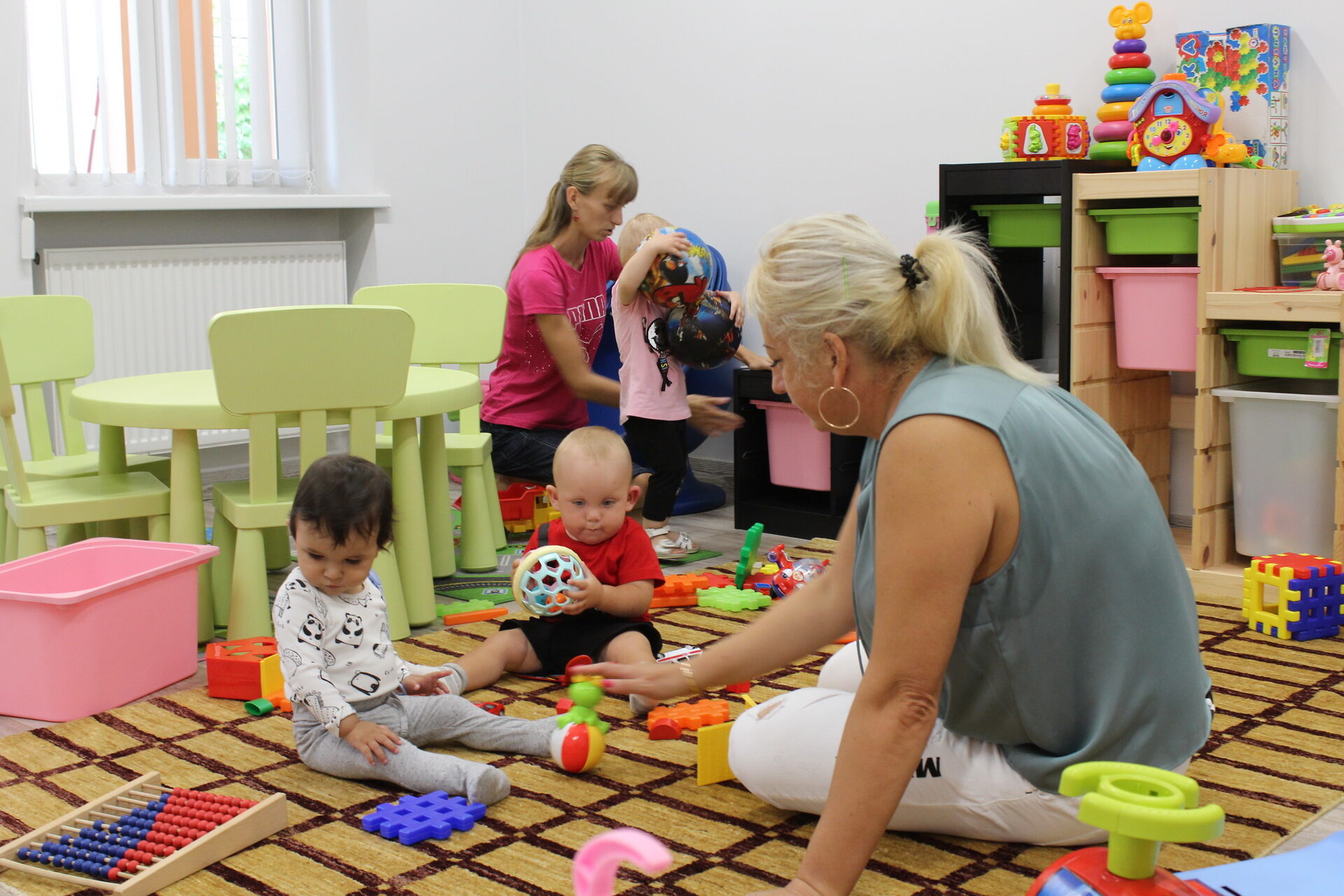

“On one occasion, the air raid signal on my phone went off. Instantly, a four-year-old girl ran to her mother sitting in the other side of the room at breakneck speed, and embraced her as tightly as possible for a child of this size. Her whole body was shaking. No wonder, she and her family barely managed to escape from their house when it was bombed. She even mistook the crackling noise of a water bottle for a gunshot sound. Obviously, she was still very much afraid and terrified something could happen to them. Another time we were just sitting by the open window, when the children heard the sounds of a lawnmower outside. Three-year-old Katya wanted to know if it was a military plane, telling me how afraid she is of them. Back home, they were told to lie on the floor upon hearing that noise. I needed to calm her, and assure her it was a lawnmower.”
Fortunately, I started seeing improvements in this regard. They don’t talk about what they went through there anymore. Now they fantasize about how good it will be when they can finally move back to their homes. Some of them had to leave their beloved red matchbox or teddy bear there. It’s heartbreaking. These children are very smart, unfortunately they very much understand everything going on around them. They long to go back into the environment they call home.”
Do you think they will ever be able to cope with their trauma caused by the war?
“I think that these experiences will live with them for the rest of their lives. Traumas like these change you. Our grandparents could never forget WWII. Sure, memories will fade with time, but it will come back again and again, affecting them for the rest of their lives. Those children who continue to live in a warzone and experience the bombing and fighting day after day will definitely need a psychologist to help them recover to some extent.”
HIA is not only helping these families and children with food kits, their goal is to provide spiritual and mental support as well. According to Szilvia, they will help them as long as help is needed. She assures me, that also the mothers and children she originally took care of in the Sure Start House are not forgotten. However, in recent weeks more than half of the 15 families have moved to Hungary in search of safety. Those, who stay behind will have to face a situation even more difficult than before the war, so they can count on HIA’s and Szilvia’s help in the future as well.
This story originally appeared here, reported by Csilla Hegedüs.

